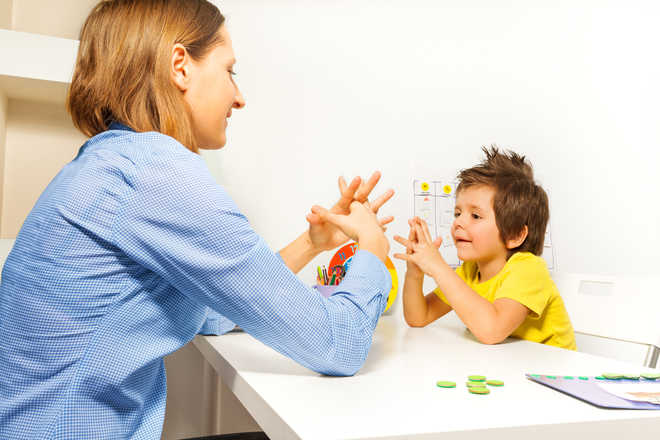
Photo source: Thinkstock
New York
Faecal transplants – a method of introducing donated healthy microbes into people with gastrointestinal disease to rebalance the gut — may benefit children suffering from autism, a new study has suggested.
Behavioural symptoms of autism and gastrointestinal distress often go hand-in-hand, and both improved when a small group of children with the disorder underwent faecal transplant and subsequent treatment.
Researchers, including those from University of Arizona in the US, studied about 18 children with autism and moderate to severe gastrointestinal problems.
Children without autism were included for comparison of bacterial and viral gut composition prior to the study.
Researchers collected this information from parents through established, standardised questionnaires to assess social skills, irritability, hyperactivity, communication and other measures. One of those tools showed the average developmental age increased by 1.4 years after treatment.
The average score on a scale for ranking gastrointestinal symptoms dropped 82 per cent from the beginning to the end of treatment.
An overall improvement that was sustained two months after the final treatment was seen when the researchers asked parents to give feedback on 17 autism-related symptoms.
A diagnostic evaluation before the experimental treatment, at the end of treatment and eight weeks after that was also conducted.
Doctor-reported symptoms (from the Childhood Autism Rating Scale) decreased by 22 per cent at the end of treatment and 24 per cent eight weeks after treatment ended compared with ratings at the start of the study, researchers said.
"Transplants are working for people with other gastrointestinal problems. And with autism, gastrointestinal symptoms are often severe, so we thought this could be potentially valuable," said Ann Gregory of Ohio State University in the US.
Previous research had established that children with autism typically have fewer types of some important bacteria in their guts and less bacterial diversity overall — a difference that held true in this study.
That could be because many of them are prescribed a lot of antibiotics in the first three years of life, researchers said.
The study was published in the journal Microbiome — PTI



























